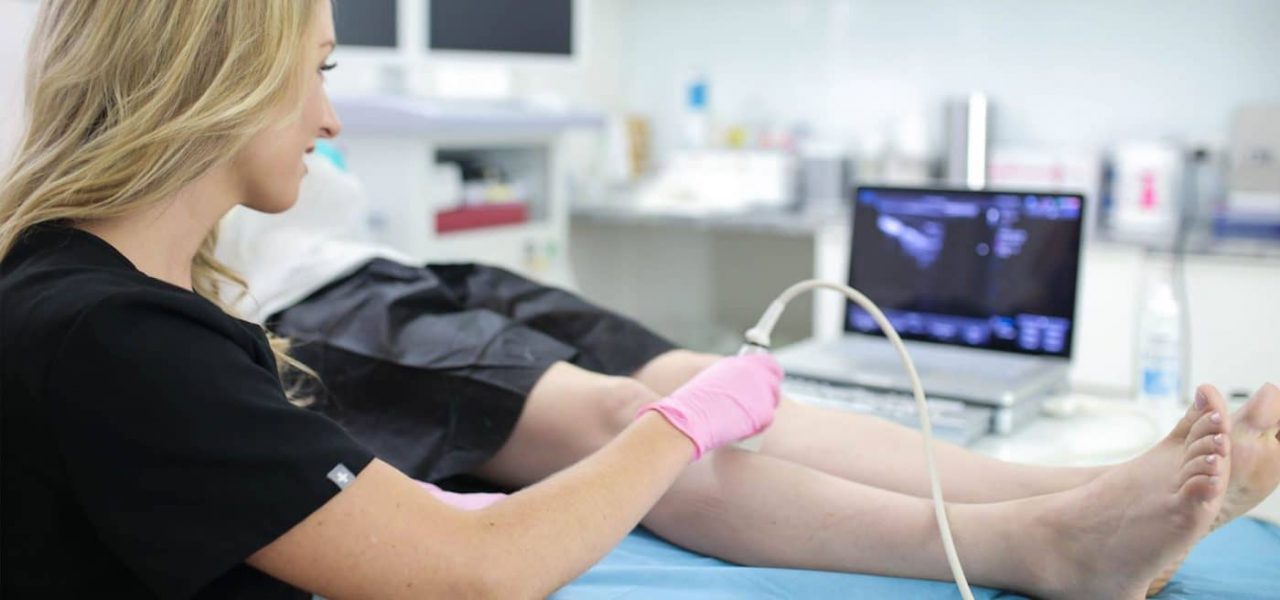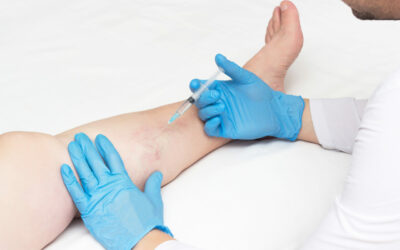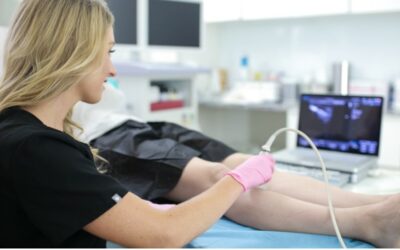What Kind of Doctor Specializes in Veins? We Answer Your Top Vein Questions
April 23, 2021
What kind of doctor specializes in veins?
Vein doctors, also known as phlebologists, are the medical professionals who deal with vascular health, including the diagnosis and treatment of all vein-related problems, such as spider veins, varicose veins, and chronic venous insufficiency. However, vein doctors come from all medical backgrounds, such as anesthesiology, cardiology, dermatology, and cosmetic surgery, if they have the necessary training in vein care.
Instead of finding just any doctor providing vein treatments, you should focus on phlebologists with specialized training in minimally invasive spider vein and varicose vein treatments, especially those who have complete fellowships and residency programs in vein care. Our vein treatment centers are led by highly-skilled and trained vein doctors with additional training in vascular diagnosis and treatment.
Do dermatologists treat veins?
As mentioned previously, vein doctors can come from all fields of medicine, including dermatology. But just because dermatologists can also provide vein treatments doesn’t mean they specialize in vein care. Dermatology is the branch of medicine concerned with the diagnosis and treatment of skin problems. Vein-related problems, such as spider veins and varicose veins, may seem like skin conditions because they affect your cosmetic appearance, but they’re caused by an underlying circulatory disorder.

Dermatologists provide laser therapy and sclerotherapy injections to remove the visible veins from the skin’s surface, but they don’t specialize in the diagnosis and treatment of chronic venous insufficiency. Seeking vein treatment from dermatologists would lead to a high risk of vein disease recurrence. However, if your dermatologist also has specialized training in minimally invasive vein treatments, i.e., if they’ve completed advanced fellowships and residency programs in vein care, you can go ahead and work with them.
When should I see a vascular specialist?
You should consult a vascular specialist if you have spider veins, varicose veins, or other signs and symptoms of chronic venous insufficiency, the root cause of most vein problems. Most patients only consult vein doctors when they notice spider veins and varicose veins, but you can also consult them at the earliest stages of vein disease — before you develop spider veins and varicose veins. Prompt and early treatment of vein disease will help you avoid varicose veins.
Chronic venous insufficiency is a circulatory disorder caused by the collapse or malfunction of your vein valves. In healthy veins, the valves act as one-way doors that facilitate smooth blood circulation towards the heart against the force of gravity. When your vein valves collapse, blood flows backward due to gravity and accumulates in the leg veins. The continued accumulation of blood in leg veins leads to spider veins and varicose veins.
Identifying the earliest warning signs of vein disease can be challenging since they resemble the signs of aging and exhaustion. However, you should remember that the symptoms of vein disease gradually worsen at the end of the day or after long periods of inactivity. The earliest signs of vein disease include leg heaviness, frequent leg cramps, restless leg syndrome, skin discoloration, and leg swelling. Please consult vein doctors in TX if you notice these signs and symptoms of vein disease.
BOOK AN APPOINTMENT
Vein Treatments are covered by most major medical insurances, including Medicare. Verify your coverage for FREE today!
How to take care of veins?
The best way to take care of veins is to maintain optimal blood circulation and vascular health. The following tips can improve your overall vascular health and circulation:
- Maintain an active lifestyle with regular exercise
- If you have a desk job, get up regularly to take short walking breaks
- Remain hydrated to improve blood circulation
- Stop smoking
- Eat plenty of fruits and vegetables
- Wear compression stockings while performing sedentary activities, such as desk jobs
How to prevent varicose veins and spider veins?
There are no sure means of preventing varicose veins and spider veins. You may develop vein disease for a wide range of factors, such as genetic predisposition, a medical history of vein problems, biological sex, hormonal changes, pregnancy, obesity, or a sedentary lifestyle. Various factors can contribute to your risk of vein disease, so you can’t prevent it altogether.
However, you can implement the vascular care techniques mentioned earlier to minimize the risk of varicose veins and spider veins. Furthermore, if you notice the early signs and symptoms of chronic venous insufficiency, you must seek vein treatments in TX without delay. Please consult our vein doctors in Texas if you have leg heaviness, frequent leg cramps, or restless leg syndrome.
How to get rid of veiny legs?
The best way to get rid of veiny legs is to consult a reliable vein treatment center in Texas. Your vein doctor will examine your leg veins, discuss your symptoms, review your medical history, and perform ultrasound diagnostic scans to determine the root cause of your vein problems. Based on their examination, they’ll curate the ideal vein treatment plan for you, which may include radiofrequency ablation, endovenous laser ablation, sclerotherapy, ambulatory phlebectomy, and other minimally invasive spider vein and varicose vein treatments.
What are non-invasive vein treatments?
Non-invasive vein treatments are medical procedures that address your vascular problems, such as spider veins, varicose veins, and chronic venous insufficiency, without incisions or surgeries. Non-invasive vein treatments are generally performed via superficial injections on the visible spider veins — sclerotherapy is one of the most effective and popular non-invasive spider vein treatments. Your vein doctor injects a sclerosant medicine into the spider veins to make them shrink and fade away from the skin.
Meet Our Houston
Vein Doctor

Calvin Jung MD
Spider Vein and Varicose Vein Doctor
Dr. Jung focuses on spider and varicose vein removal by implementing minimally-invasive vein treatments such as sclerotharpy, radiofrequency ablation, clarivein & VenaSeal.
WHAT TO EXPECT IN OUR
Texas Vein Center
contact us today
Call us
Book online
Visit our Book Appointment page and instantly request an appointment at a Texas vein center near you. We offer Free Insurance Verification before your appointment.
Get directions
Learn how to easily get to the Texas vein center nearest to you.
FEATURED POSTS BY VEIN DOCTORS
What Does a Vein Clinic Do? Top Vein-Related FAQs, Answered
What Does a Vein Clinic Do? Top Vein-Related FAQs, AnsweredApril 24, 2022What does a vein clinic do?A vein clinic is a medical center responsible for the diagnosis and treatment of vein-related conditions, such as spider veins and varicose veins. As such, vein clinics...
What is a Varicose Vein Specialist Called? We Answer Your Vein Treatment Questions
What is a Varicose Vein Specialist Called? We Answer Your Vein Treatment QuestionsApril 23, 2022What is a varicose vein specialist called?The official terminology for a varicose vein specialist is a “phlebologist.” The name is derived from “phlebology,” the branch of...
Are Varicose Vein Treatments Covered by Insurance? And Other Vein-Related FAQs
Are Varicose Vein Treatments Covered by Insurance? And Other Vein-Related FAQsApril 23, 2022Are varicose vein treatments covered by insurance?Generally speaking, insurance policies cover medical treatments that are deemed “medically necessary.” As such, to understand...
What kind of specialist treats varicose veins?
What kind of specialist treats varicose veins?April 09, 2022What kind of specialist treats varicose veins?If you have spider veins, varicose veins, or other vein problems, you should consult a phlebologist, also known as a vein doctor. Phlebology is the branch of...


